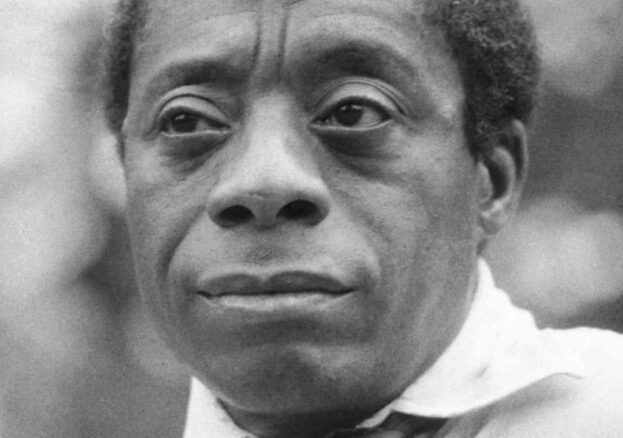
James Baldwin, an emblematic figure of monumental influence in literature and civil rights, masterfully wielded his command of language to dissect and challenge the entrenched inequalities of his era. His work, deeply embedded in the nuances of racial and sexual identity, serves as a reflective mirror to mid-20th-century America and beyond, shining a light on the adversities faced by individuals at the intersection of being black and gay.
Through a rich tapestry of essays, novels, and public addresses, Baldwin illuminated these tribulations and charted a course towards understanding, dialogue, and, ultimately, societal change. His oeuvre offers a potent lens through which we can examine the enduring battle for equality, underscoring the pertinence of his contributions today as much as they were in his own time.
Embracing Intersectionality
Born on 2 August 1924 in Harlem, New York, Baldwin navigated the complexities of identity from a young age. The racial injustices he witnessed and endured were compounded by his experiences as a gay man, infusing his writings with a profound sense of empathy and a demand for universal dignity. Baldwin’s exploration of both racial and sexual identities broke new ground, providing insights that resonate deeply with contemporary struggles for equality and justice.
Baldwin’s seminal works, such as “Giovanni’s Room” and “Another Country,” boldly addressed themes of sexuality alongside race, challenging societal norms and prejudices. His courage in exploring these themes, at a time when doing so was both radical and risky, underscores his significance not only to black history but also to LGBTI history.
A Global Perspective
Baldwin’s influence transcended American borders, with significant periods of his life spent in Europe, particularly in France. This international experience enriched his critique of American society and offered him a vantage point from which to address global audiences, including those in the UK. His engagement with British intellectuals and activists further cemented his role as a bridge between movements for racial and sexual equality worldwide.
The Power of Inclusive Language
Baldwin’s eloquence underscores the importance of inclusive language in advocating for equality. His writings, characterised by an inherent understanding of intersectionality, invite us to consider the interconnectedness of our struggles and identities. By adopting a tone that embraces this complexity, we honour Baldwin’s legacy in a manner that resonates with the widest possible audience.
Contemporary Echoes
Today, Baldwin’s work remains remarkably relevant, offering critical insights into the ongoing challenges faced by black and LGBTI communities. His insistence on the transformative power of love and empathy speaks directly to contemporary movements seeking to combat discrimination and inequality. Drawing parallels between Baldwin’s era and our own, we find guidance in his unwavering commitment to justice and his belief in the potential for societal change.
Bridging History Months
Celebrating Baldwin during Black History Month in the USA and LGBTI History Month in the UK serves as a powerful reminder of the interconnectedness of our histories and struggles. Baldwin’s life and work exemplify the intersection of racial and LGBTI identities, offering a unifying narrative that transcends categorisation and inspires solidarity.
Further Exploration
For those inspired by Baldwin’s legacy, a wealth of resources awaits. Works like “I Am Not Your Negro,” a documentary based on Baldwin’s unfinished manuscript, offer profound insights into his thoughts on race, identity, and American history. Engaging with these resources can deepen our understanding of Baldwin’s impact and the ongoing relevance of his work.
Delving Deeper: Baldwin’s Activism and Legacy
James Baldwin not only wrote about the experiences of black and gay people but also actively participated in the struggle for their rights. His speeches and public debates, often broadcast on national television, presented Baldwin as a figure who could articulate the pain and injustice of discrimination with unparalleled clarity and passion. His ability to bridge the personal with the political made his work revolutionary.
Baldwin’s engagement with the civil rights movement, his friendships with figures like Martin Luther King Jr., Malcolm X, and Medgar Evers, and his outspoken critiques of racial injustice in America positioned him as a pivotal figure in the fight for civil rights. Yet, Baldwin’s advocacy was not limited to race alone; his writings on sexuality and identity challenged the homophobia and prejudice of his time, making him a forerunner in what would become the LGBTI rights movement.
Impact and Relevance in the UK
In the UK, Baldwin’s work has resonated with audiences facing their own struggles with race, identity, and colonial legacies. His visits to Britain, documented in appearances on British television and interactions with the British literary and activist communities, highlighted the global dimension of his appeal and influence. Baldwin’s ability to speak to the universal aspects of struggle and resistance makes his work profoundly relevant to British audiences, particularly those engaged in ongoing conversations about race, identity, and equality.
The Enduring Power of Baldwin’s Words
The enduring relevance of James Baldwin’s work lies in his profound humanism, his unyielding hope for a better world, and his belief in the power of truth, articulated through the written and spoken word, to transform society. As we navigate the complexities of the 21st century, Baldwin’s call for love, understanding, and justice remains as vital and inspiring as ever.
James Baldwin’s legacy as a writer and activist offers a compelling blueprint for understanding and navigating the complexities of identity in the fight for equality. His life’s work, rooted in the intersections of race and sexuality, provides a powerful testament to the enduring relevance of his message. As we commemorate Black History Month in the USA and LGBTI History Month here in the UK, let us draw inspiration from Baldwin’s example, embracing the full spectrum of our identities in the pursuit of a more just and compassionate world. Through his enduring influence, Baldwin continues to inspire a global audience, encouraging a dialogue that transcends geographical and cultural boundaries, and reminding us of the transformative power of words in the ongoing fight for equality and justice.
